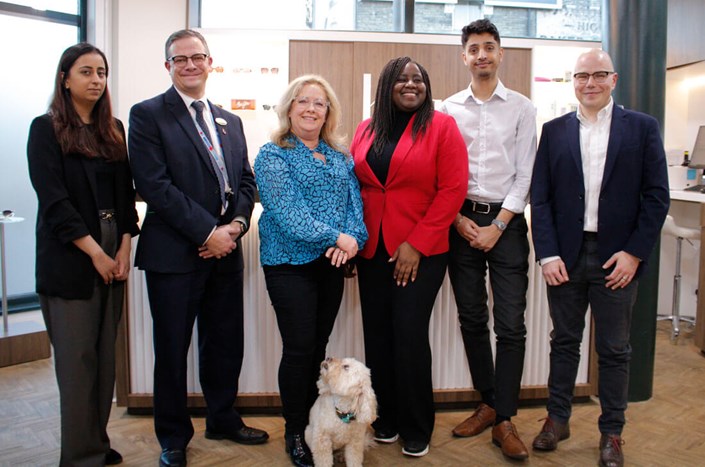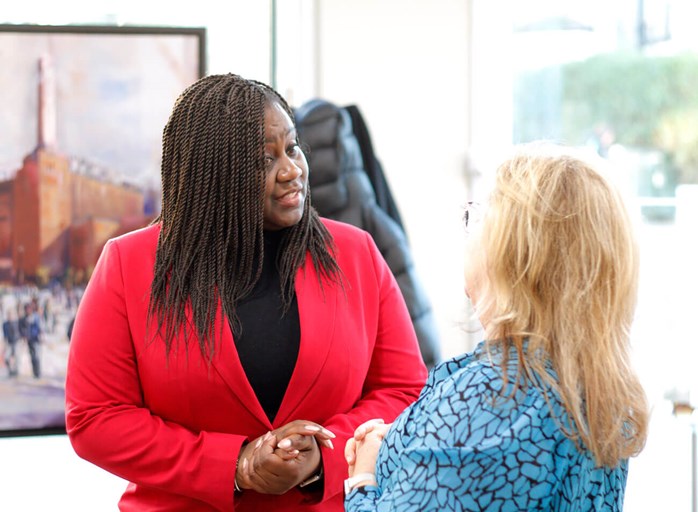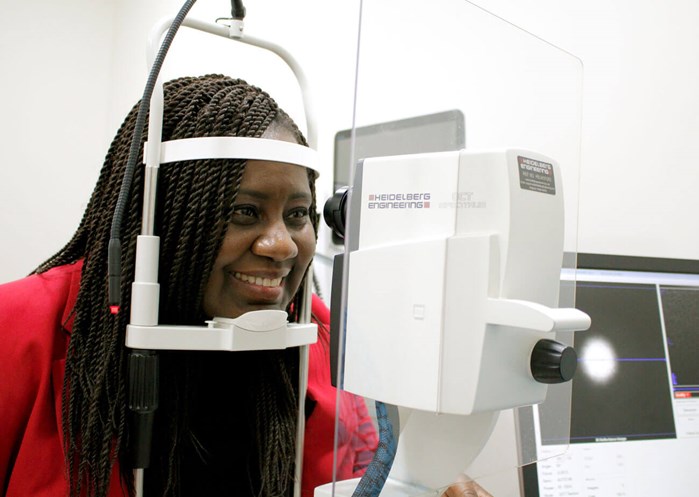In a practice visit and roundtable event, Marsha de Cordova, MP for Battersea, highlighted the current postcode lottery on eyecare services for patients, and the urgent need for action.
The event, which was organised by the Association of Optometrists (AOP), brought together AOP members in the Battersea constituency to meet the MP to discuss the role of primary eyecare services in the area.

The event was attended by representatives across optometry, including independent and multiple practices, Moorfields Eye Hospital, and the Local Optical Committee. The roundtable discussion, which was facilitated by Dr Peter Hampson, Clinical and Professional Director at the AOP, explored challenges practitioners face in delivering eyecare in the community, such as how services vary depending on locality and how the optometry workforce could be used to provide more extended eyecare in the community.
Marsha de Cordova, who is also Chair of the All Party Parliamentary Group on Eye Health and Visual Impairment, said: “With hospital eye services across the nation facing increasing strain, sadly it is the patients that suffer the consequences, waiting inexcusable amounts of time for diagnosis and treatment. It’s more important than ever that we find solutions. I was heartened to hear that community optometry clearly has a lot to offer in being part of that solution. If commissioned equitably, extended eyecare services would enable more patients to access timely specialist care that’s also closer to their home.”

Opportunities to create fair access to eyecare services for patients were also discussed, with attendees pointing to improved IT connectivity between optometry and hospital teams, as well as a national plan for eyecare that makes use of the highly trained, clinical workforce of optometry.
Optometrist and AOP member, Karen Lockyer, who hosted the event at her practice Karen Lockyer Optometrists in Battersea, said: “Optometry practices like ours are available on every High Street across the country, and we are well equipped with the skills and equipment to triage and reduce unnecessary referrals into hospitals. A national approach for eyecare that recognises and utilises our training will save patients from enduring long waits, improve their access to care in their local area, and alleviate the burden on hospitals, A&E departments and GPs.”

The discussion also reflected on the recent announcement by the Labour Party to negotiate with High Street optometrists to deliver NHS outpatient appointments if elected into power. The group viewed the plan as a positive step in improving eye care services but emphasised the need for a continued commitment for its success.
Dr Peter Hampson, said: “We appreciate the views shared by the AOP members who attended the roundtable, and their first-hand insights on the challenges and opportunities that come with delivering eye care in the community. The discussion provides context – as well as solutions - that will inform our ongoing activity to improve patient access to eyecare.”



